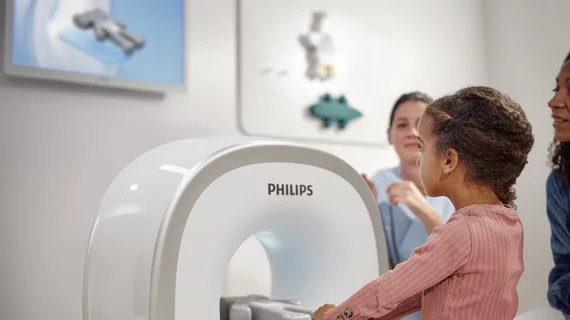Health giant launches ‘coaching’ solution to help patients with MRI anxiety
Health technology giant Philips is launching a new “coaching” solution to help patients manage their anxiety before undergoing MRI exams, the company announced Monday.
The Philips Pediatric Coaching system utilizes games and "buddy system" techniques to prepare children and their parents for the MRI procedure process. Company officials believe the approach can help perform more scans without sedation and decrease anxiety-related movement, which enhances image quality.
“As adults, many of us can experience anxiety and stress during an MRI exam, and this is especially true for our youngest patients,” General Manager of Philips Healthcare Environment and Experience Design Werner Satter said in a statement. “By removing factors that can trigger stress, we are enhancing the patient engagement experience for pediatric patients to help improve outcomes.”
Children are given a mobile app before an exam with a virtual "buddy" who shows them what an MRI machine looks like, how to perform a scan and lay still during an exam, among other things.
The same cartoon partner works with the patient in the radiology department as they scan toy animals on a small educational machine. When the child ultimately undergoes their own exam, their buddy’s voice and image are projected nearby to help coach them through the process.
Earlier this year, Philips announced a partnership with the Walt Disney Company testing custom-made animated stories during pediatric MRI. The project was part of its Ambient solution offerings, which now include the company's new coaching solution.

